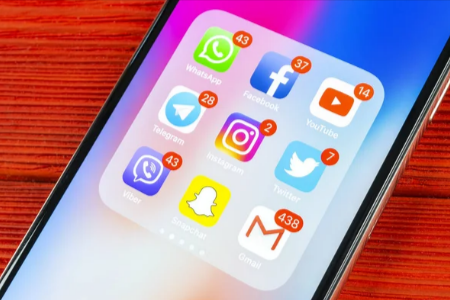The iOS 17 and iPadOS17 users of Safari may now secure their private tabs using Face ID or Touch ID. If you are considering giving someone your phone or tablet but cannot allow them to see which pages are open, the option is helpful.
Table of Contents
iOS 17
The iOS 17 update, which introduces an array of new features including Contact Posters, NameDrop, and Standby mode just to name a few, was released by Apple yesterday. A new privacy-enhancing functionality that allows Safari users to lock their private tabs using FaceID has been incorporated in the most recent releases of iOS and iPadOS.
The Private Surfing feature appears to have received a slight modification by Apple; it is now available by simply tapping from the Tabs display, and locked pages now display a message stating that Personal Browsing is Protected.
Locking Safari Private Tabs through Face ID
After updating to iOS 17, when you open Safari for the first time, an interface will appear allowing you to swiftly lock personal tabs behind your Face ID security.
You can also activate the Required facial recognition to enable the Private Viewing setting under Safari in the Settings application on the iPhone or iPad in the event you skipped out.
After getting activated, Safari will request you to use Face ID or Touch ID to unlock these opened tabs even if your gadget is already accessible so you may lend your phone or tablet to someone else without concern that they will be able to see your personal tabs.
But you should remember as well that when you exit Safari, switch to another browser, or lock your device, Private Browsing will instantly lock your sessions.
Other features Safari Offers in iOS 17:
Anti Web Tracking
With Safari now deleting data about tracking from URL addresses, iOS 17 improves surfing privacy. It stops sites from tracking and recognizing particular devices. By using this preventative measure, websites and marketers are able to refrain from monitoring users’ online behavior. Without impacting the standard internet exposure, users can enable this option to apply only during confidential browsing or to all internet sessions.
Scammer-Avoidance
Moreover, users can safely share Passkeys, a phishing-resistant login substitute, with friends and family after receiving an update. Encryption from end to end is used throughout the transmission process, even for passwords, assuring anonymity even from Apple. Passkeys have been implemented by major service providers like Apple, Google, Microsoft, and PayPal, confirming the future without credentials.
Additionally, iPhone owners can let their pals know when they plan to arrive securely at a particular spot by using an innovative feature called Check-In. Encryption at every stage is used, thus there is no need for apps developed by third parties that are known for transferring users’ position data to marketers and data intermediaries.
Conclusion
With a vast array of features, including Contact Posters, NameDrop, and Standby mode, this update caters to user needs and security alike, Apple’s iOS17 update stands out as a beacon of innovation and privacy protection.
Moreover, the introduction of Face ID to lock Safari Private Tabs brings a newfound level of confidence in online privacy. Whether you’re safeguarding your personal tabs or using the Anti Web Tracking feature to prevent online tracking, iOS 17 prioritizes your security without compromising your browsing experience.
Additionally, the convenience of Passkeys and the Check-In feature further enhance user convenience and safety. Passkeys’ end-to-end encryption assures anonymity, and Check-In eliminates the need for data-hungry third-party apps.
Finally, iOS 17 reinforces its commitment to delivering cutting-edge technology with a steadfast focus on user privacy even as Apple continues to redefine user experiences. It’s a testament to Apple’s dedication to making the digital world a safer and more enjoyable space for all.














